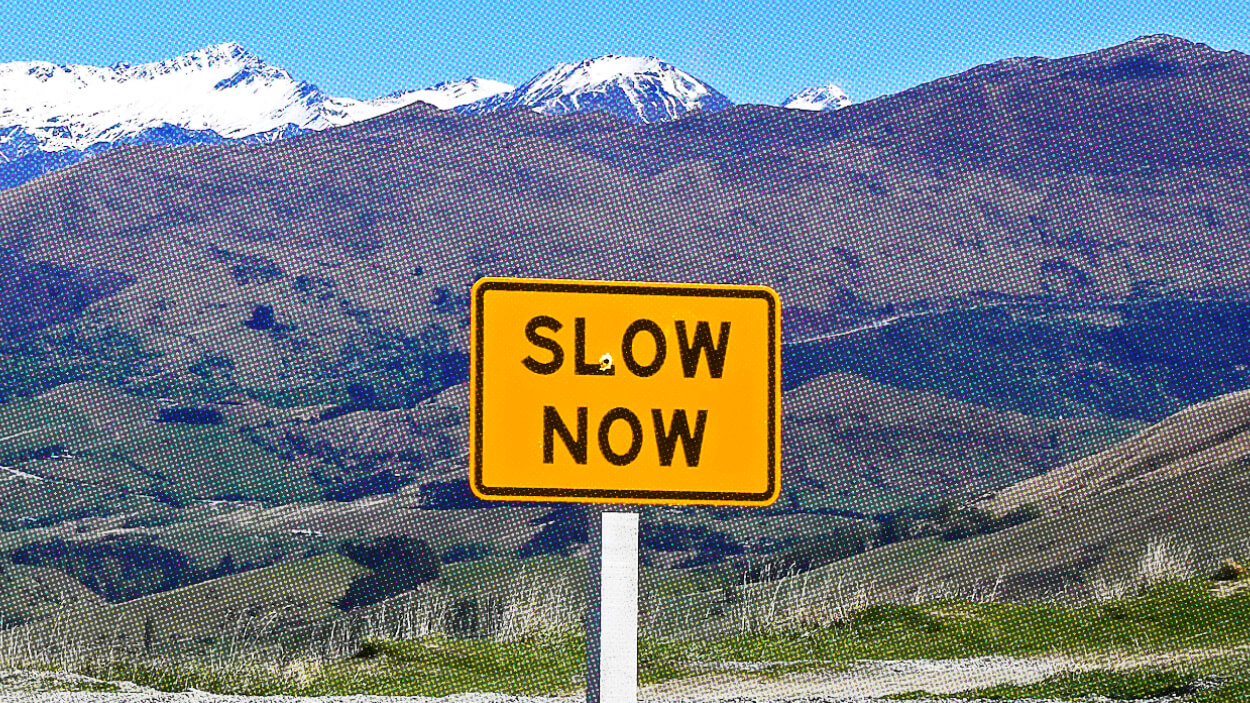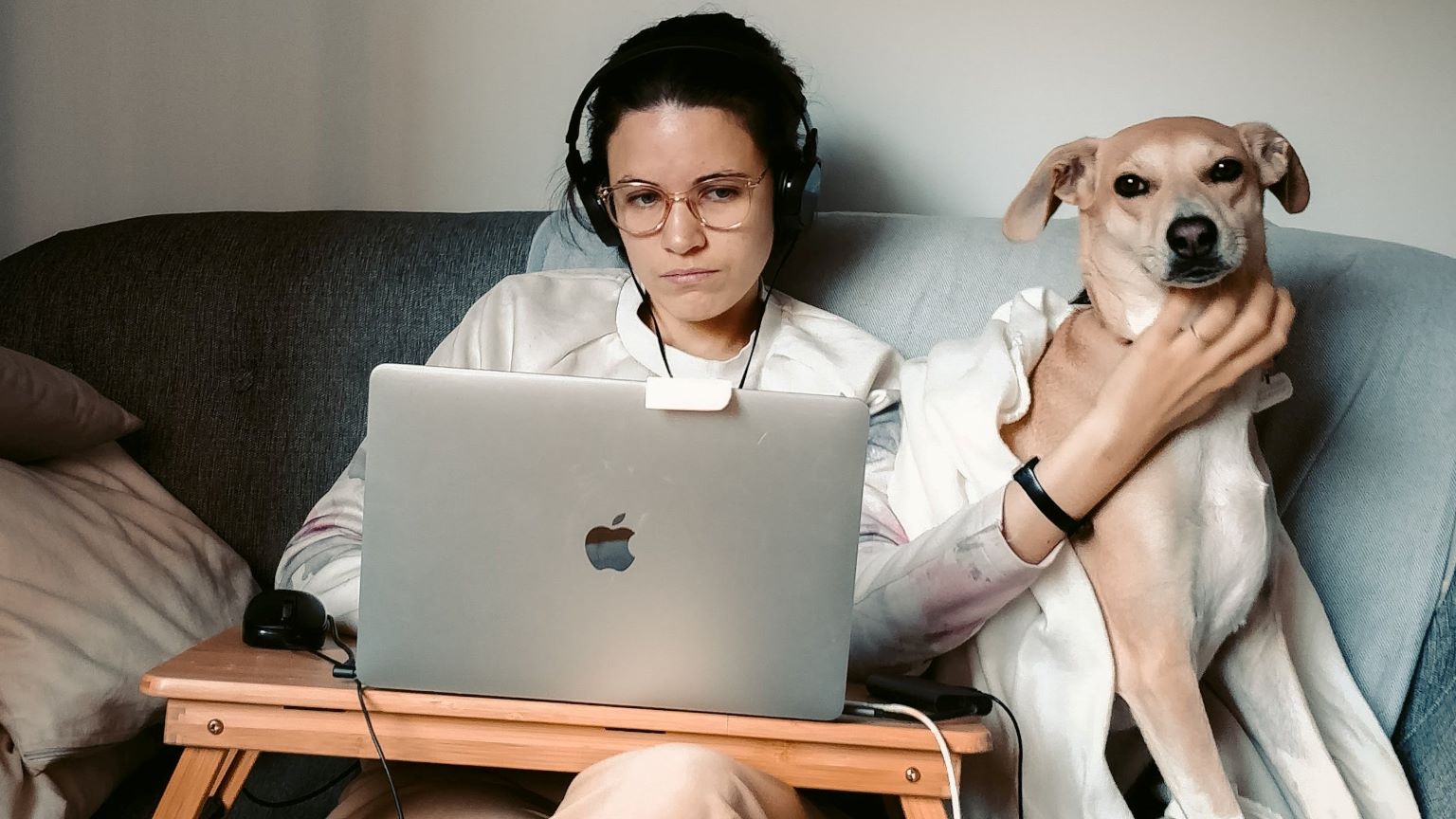Expert tips for avoiding the ‘time famine’ trap

- In a world that’s always online, it’s easy to feel like we have insufficient time for ourselves, or to spend with our families and loved ones.
- Working out what you need to get done each day, and how long it will take, will allow you to create priorities on which you can focus your available time.
- If you find the traditional methods of mindfulness meditation too difficult, then meditative practices such as yoga or even running can also be extremely beneficial.
Even before the world entered a “new normal” resulting from the global pandemic, time management was a challenge for many of us.
This is a particular problem for the United States. Longer paid vacations and caps on working time for many Europeans have led to a situation where Americans work, on average, around 10 percent more than their European counterparts.
Nevertheless, “time famine” is a very real phenomenon across the globe. In a world that’s always online, it’s easy to feel like we have insufficient time for ourselves, or to spend with our families and loved ones. In reality, there are never (no, never) more than 24 hours in any given day, and proactively choosing how we spend them can help to reduce the feeling that we’re starved of time.
Here are some ways to achieve a healthier balance, so you can hopefully avoid the inevitable burnout that results from overexposure to time famine.

Photo by Abbie Bernet on Unsplash
According to Harvard Medical School, around half of us get less sleep than the recommended guidelines. The average adult needs around seven or eight hours per night. If you’re feeling starved for time, then the chances are that losing sleep feels like an easy compromise to cram more hours into the day. But the opposite is true.
A lack of sleep will seriously affect your productivity and creativity. One study found that even moderate sleep deprivation will impact your cognitive and motor performance to the equivalent level of having a 0.1 percent blood alcohol concentration, which is also the threshold for driving legally.
So, although it may seem paradoxical, getting the right amount of sleep should provide an immediate productivity boost that will help you get through more each day.
Hiten Shah, co-founder of document management software company FYI, has an anecdote about a friend who was asked by his boss to pull up a document while in the middle of a meeting. The friend started frantically scouring his hard drive, Google Docs and email attachments to try and locate the document.
All the while, the boss was sitting there, becoming more and more impatient, as Shah’s friend was getting more and more flustered and embarrassed, which of course made it even harder for him to find the missing file. “Finally, out of cosmic mercy, someone sends him the document,” Shah writes. “But my friend didn’t feel relief at that point, he felt anxious.”
It’s a cautionary tale, to be sure. Truth be told, we’ve probably all had one of those moments. But if your day has become an endless cycle of looking for documents, trying to find your keys, and wondering where you put shoes when you took them off last night, then you’ll benefit from getting organized.
This may mean using a document management system or simply creating a designated space for everyday objects. Doing so will mean you free up all that time spent looking for missing things and reduce your overall stress levels.

Effective scheduling of your time doesn’t mean assigning each half-hour to specific activities. In fact, doing this will probably make you even more stressed as there’s no flexibility to respond to last-minute changes.
But working out what you need to get done each day, and how long it will take, will allow you to create priorities on which you can focus your available time. In their book “The ONE Thing,” authors Gary Keller and Jay Papasan recommend asking yourself, “What’s the ONE thing you can do this week such that by doing it everything else would be easier or unnecessary?”
While it may be difficult to find that one task, you can start to list the top one to three most important tasks each day. Prioritizing these within your available working time will ensure you’re focusing on the right activities to stay productive.
Once you have a daily or weekly list of priorities, it becomes easier to learn how to say no. If what’s being requested of you doesn’t somehow make it easier to achieve your mission-critical tasks, then you’ll find it easier to politely decline. In the words of Warren Buffet, “Successful people say no to almost everything.”
One easy way to start saying “no” is to switch off your phone alerts. Constant notifications can be a powerful distraction from achieving your goals. When we switch between tasks, it can take around 23 minutes to get focused again. Unless your job involves managing social media accounts, chances are you don’t need to be notified about the latest like on a Facebook picture.
Similarly, if you confine checking emails to scheduled slots each day, you can dedicate your productive time to working on your priorities.
If it’s not possible to say no to a particular task or request, then perhaps it’s possible to simply have someone else do it instead.
In his book, “Find Your Why,” Simon Sinek writes that truly knowing yourself is the key to a sense of purpose. “When we focus on our strengths and lean in to the strengths of others,” he writes of collaboration and delegation, “we can make the impossible possible.”
Many people believe they have to do everything themselves to be successful. But a failure to leverage the help around you can lead to overload and fatigue. If you’re in a position to delegate or outsource tasks, then do so whenever you have the opportunity.
According to a survey conducted by Buffer, 41 percent of workers believe that their biggest barriers to self or family care are feeling distracted and anxious. Feeling starved of time only makes it harder to be fully present doing whatever you’re doing at a given moment, adding fuel to these negative emotions.
In a similar way to getting more sleep, it may seem difficult to make time for meditation if you’re starting to feel overwhelmed. But studies have shown that meditation has multiple positive health benefits, including reducing stress, controlling anxiety and lengthening attention span.
If you find the traditional methods of mindfulness meditation too difficult, then meditative practices such as yoga or even running can also be extremely beneficial.
Time famine is a problem from which many of us suffer. But these few simple habits and practices can help to alleviate the feeling of overwhelm and increase productivity.
There may only be 24 hours in each day, but directing them into the right activities and priorities helps to cultivate a sense that time is a more abundant resource.





